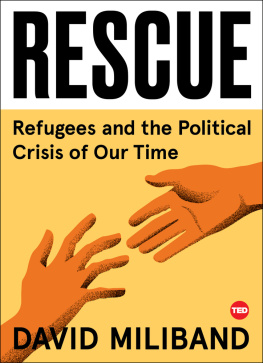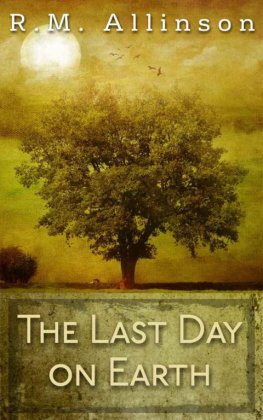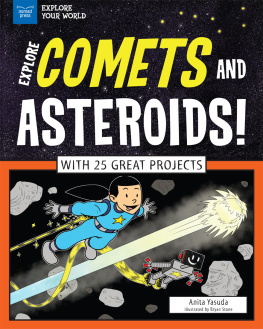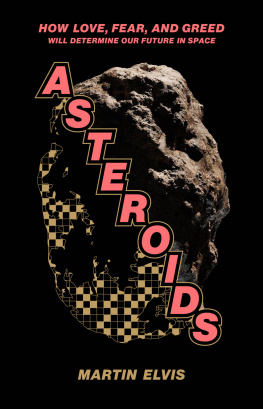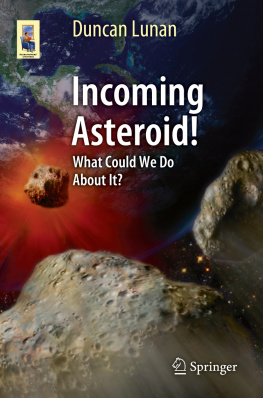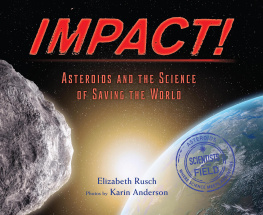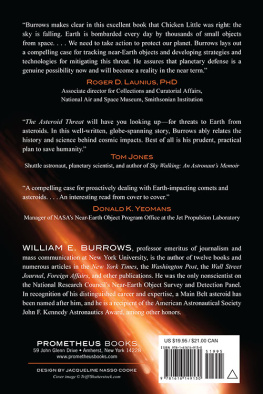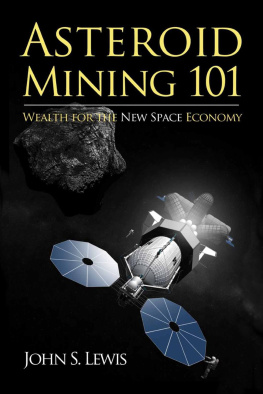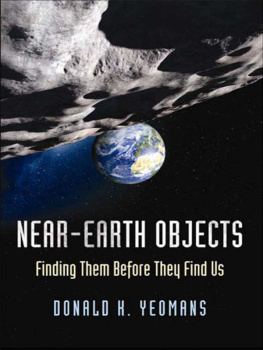Thank you for downloading this TED Books eBook.
Join our mailing list and get updates on new releases, deals, bonus content and other great books from TED Books and Simon & Schuster.
C LICK H ERE T O S IGN U P
or visit us online to sign up at
eBookNews.SimonandSchuster.com
We hope you enjoyed reading this TED Books eBook.
Join our mailing list and get updates on new releases, deals, bonus content and other great books from TED Books and Simon & Schuster.
C LICK H ERE T O S IGN U P
or visit us online to sign up at
eBookNews.SimonandSchuster.com

Simon & Schuster, Inc.
1230 Avenue of the Americas
New York, NY 10020
www.SimonandSchuster.com
Copyright 2017 by Carrie Nugent
All rights reserved, including the right to reproduce this book or portions thereof in any form whatsoever. For information address Simon & Schuster Subsidiary Rights Department, 1230 Avenue of the Americas, New York, NY 10020
TED, the TED logo, and TED Books are trademarks of TED Conferences, LLC.
First TED Books hardcover edition March 2017
TED BOOKS and colophon are registered trademarks of TED Conferences, LLC
SIMON & SCHUSTER and colophon are registered trademarks of Simon & Schuster, Inc.
For information about special discounts for bulk purchases, please contact Simon & Schuster Special Sales at 1-866-506-1949 or
For information on licensing the TED Talk that accompanies this book, or other content partnerships with TED, please contact .
Interior design by: MGMT.design
Interior illustrations by: Mike Lemanski
Jacket design by: Chip Kidd
Library of Congress Cataloging-in-Publication Data has been applied for.
ISBN 978-1-5011-2008-4
ISBN 978-1-5011-2009-1 (ebook)
To the next generation of scientists, who have so much to discover
CONTENTS
A Wild Frontier
I want you to imagine the solar system. I bet youre trying to recall an image from a childhood textbook: Mercury, Venus, Earth, Mars, Jupiter, Saturn, Uranus, Neptune. The planets are stately spheres, in a neat line leading away from the Sun.
Viewed this way, our cosmic neighborhood looks orderly and uncomplicated: a simple place that a child could draw. It seems thoroughly explored; after all, spacecraft have traveled to every planet. Each world has been measured and photographed. The solar system has been visited, explored, and mapped. Any remaining mystery must lie farther out, for future generations to discover.
Im here to tell you that is not so. Our solar system is actually a wild frontier, teeming with different, diverse places: planets and moons, millions of objects of ice and rock. It is absolutely enormous; billions of kilometers (miles) across, so vast that we are only just beginning to figure out exactly where the solar system ends and interstellar space begins.
But even in our cosmic backyard, close to Earth, discoveries await us. I am talking about asteroids; the small, mysterious bodies that travel between the planets.
Every night, teams of scientists scour the sky for these objects. Every night, they discover new ones. It is a quiet effort, a steady accumulation of data over decades, a task that rewards coordinated teamwork. I am one of these asteroid hunters. Its a pretty cool job, and I love telling people about it.
When I tell people Im a space scientist studying asteroids, they sometimes assume Im a super-smart math whiz. The kind of person who skipped a bunch of grades and went to college when they were sixteen. Although I am good at math, school was difficult for me, and I didnt get straight As. But I was willing to work hard to satisfy my curiosity; I wanted to understand how things worked. As children, humans are naturally inquisitive about the world, and I was lucky to have encouraging parents. When I was five, my mom gave me a packet of litmus papers, chemical strips that change color when they are dipped in acids and bases. I ran around the house testing everything I could, trying to assemble a rainbow of results. So I was pretty young when I learned that science let you understandand even better, predict!the workings of the universe. By the time I got to college, I knew I wanted to study physics.
Becoming a scientist is a long journey, and at every step I found projects that were exciting, motivating me to continue. My path was not straightforwardwhen I began studying physics in college, I had no idea I would end up studying asteroids; in fact, I never took an astronomy class. But as it happened, my physics degree led me to study geophysics in graduate school, and that led me to study asteroids today. I love studying asteroids because they are relatively simple, just rocks in space. They can be understood with physics and described with elegant equations. For the most part, they are serene celestial bodies.
But for many people the word asteroid is synonymous with destruction; it brings to mind the extinction of the dinosaurs, or images from disaster movies of shattering buildings and cartwheeling cars. But large asteroid impacts are exceedingly rare. And as it turns out, there are actually things we can do now to lower the chance that someday one may harm us.
The idea that an asteroid impact can be prepared for, like one might prepare for a big winter storm, can come as a surprise. Metaphorically, asteroids seem to embody our lack of control over the universe. In literature, art, and popular culture, they are acts of God, cosmic phenomena that highlight our own powerlessness.
But the reality is quite different. As a species, we have the scientific understanding and technological prowess to actually do something about this particular problem. And it all starts with mapping the asteroids in our cosmic neighborhood.
Thanks to the hard work of generations of asteroid hunters, we have found almost all of the biggest, most hazardous objects. By the end of 2011, we had found over 90 percent of asteroids bigger than one kilometer across that get close to Earth; that is, those capable of massive destruction. And because the hunt for these objects has continued since then, that percentage is even higher today.
It is crucial we keep searching the skies. Not only would we like to find all the asteroids bigger than one kilometer across, it is also a good idea to find the slightly smaller, but still pretty big asteroids that are out there. Asteroid hunters are currently working toward a second target: finding 90 percent of the sasteroids bigger than 140 meters across that get close to Earth. These objects are big enough to decimate a medium-sized country, and so far, only about thirty percent of these have been found.
Asteroid hunting is our responsibility to the rest of the planet. We are the only species able to understand calculus or build telescopes; the poor dinosaurs didnt stand a chance, but we do. If we found a hazardous asteroid with enough early warning, we could nudge it out of the way. Unlike earthquakes, hurricanes, or volcanic eruptions, asteroid impacts are a natural disaster that can be precisely predicted and, with enough time, entirely prevented.
As you will see, finding asteroids is a complex task that requires teamwork and patience. Asteroid hunters spend long nights on remote mountains, with only skunks and owls to keep them company. We use a robotic telescope that orbits Earth, diligently imaging the sky every eleven seconds. We send data to a centralized archive called the Minor Planet Center. And all this work is managed from a nondescript building in Washington, DC, by NASAs Planetary Defense Coordination Office, an unusual place that combines the futuristic work of defending Earth from asteroids with the bureaucratic reality of operating within the US government.
Next page
